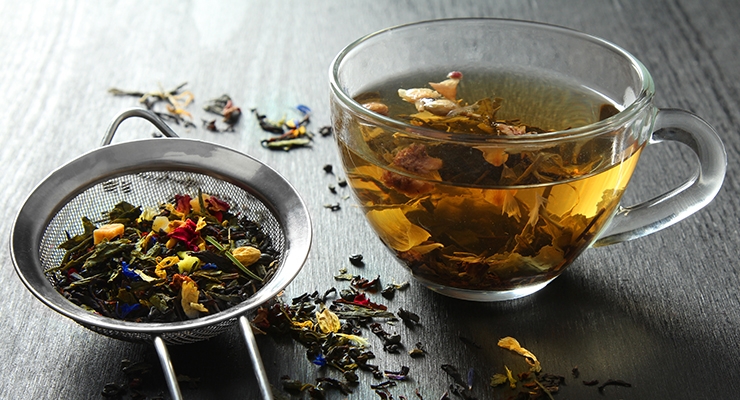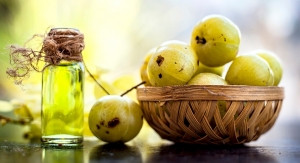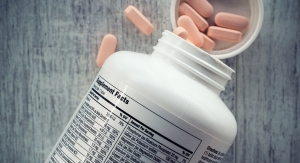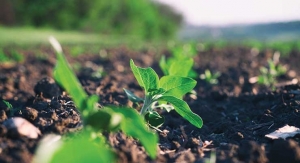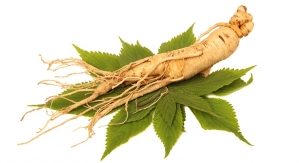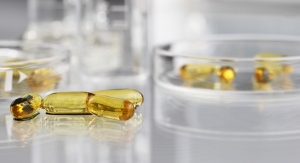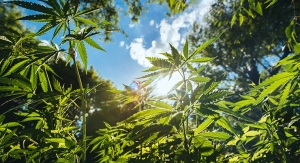By Holly Johnson, PhD, American Herbal Products Association (AHPA)09.09.19
The American Herbal Products Association (AHPA) regularly reviews scientific literature for new research that may be useful to the herbal products and supplement industries. The following are some recent articles published in peer-reviewed journals.
Herbal Teas & Their Health Benefits: A Scoping Review
This scoping review examined evidence relating to the clinical efficacy and safety of herbal teas, and identified the main research themes and gaps in knowledge to inform further work. Studies reviewed looked at herbal tea use in female health, diabetes, heart disease, and weight loss, with plant species including lavender, chamomile, fenugreek, stinging nettle, spearmint, hibiscus, yerba maté, Echinacea, and combinations of herbs. This review discussed how herbal teas may be beneficial in some areas of clinical and preventive health, and what further research is required to understand whether regular consumption can contribute to healthy living more generally. This is an industry-academic collaboration with AHPA member company Pukka Herbs.
Plant Foods for Human Nutrition, September 2019
DOI: https://doi.org/10.1007/s11130-019-00750-w
Amla (Phllanthus Emblica) Extract in a Controlled Clinical Trial for Treatment of Metabolic Syndrome
This randomized, double-blind, placebo-controlled clinical study found Phyllanthus emblica (P. emblica) aqueous extract significantly improved endothelial function, oxidative stress, systemic inflammation and lipid profile. The authors concluded that it may be used as an adjunct to conventional therapy (lifestyle modification and pharmacological intervention) in the management of metabolic syndrome.
BMC Complementary and Alternative Medicine, May 2019
DOI: https://doi.org/10.1186/s12906-019-2509-5
Chemometric Evaluation of Garcinia Raw Materials: Impact of Regional Origin & Ripeness
This study evaluated the expression and variability of the chemical markers of G. madruno according to the part of the plant used, the origin, and the ripeness stage by applying chemometric tools. A total of 167 samples were evaluated, and 27 compounds were quantified per sample. The authors found that origin of the fruit significantly impacted the expression of metabolites, but the ripeness stage did not. Epicarp was the main source of biflavonoids and the results indicated that epicarp is a good source of functional compounds and, with appropriately agronomic development, could be improved even more.
Food Chemistry, September 2019
DOI: https://doi.org/10.1016/j.foodchem.2019.04.118
Bilberry Extract Effects on Drug Metabolizing Enzymes
Vaccinium myrtillus L. (bilberry) fruit is a berry with a high content of anthocyanins, bioactive secondary metabolites that are considered to play a major role in the health-promoting properties of bilberries. This in vivo study was designed to assess the possible influence of bilberry extract on drug-metabolizing enzymes (DMEs). The authors concluded that the consumption of bilberries as a food supplement should not pose a risk of interacting with co-administered drugs based on their metabolism.
Food and Chemical Toxicology, July 2019
DOI: https://doi.org/10.1016/j.fct. 2019.04.051
Aronia: Effects of Consumption on Lipid Profile, Blood Pressure & Biomarkers of Inflammation
This systematic review of the effects of Aronia consumption on lipid profiles, blood pressure, and biomarkers of inflammation in randomized controlled trials identified and analyzed seven studies. The authors found a significant increase in high-density lipoprotein (HDL) and diastolic blood pressure following Aronia consumption. These results demonstrated a significant increase in HDL and reduction in total cholesterol and LDL among patients supplementing with Aronia.
Phytotherapy Research, June 2019
DOI: https://doi.org/10.1002/ptr.6398
Nanoencapsulation for Delivery of Nutraceutical Lipophilic Substances in Food
This review presented an overview of the state of nanoencapsulation approaches designed to deliver nutraceutical lipophilic substances. The study discussed current limitations, research gaps, industrial and societal applicability, how to face the main challenges relative to sampling and separation techniques for a complex matrix like food, the need for reference materials and validated methods, and the lack of a single regulatory framework.
Trends in Food Science & Technology, August 2019
DOI: https://doi.org/10.1016/j.tifs.2019.06.001
Nettle: A Clinical Trial for Hot Flashes & Quality of Life in Postmenopausal Women
This 12-week, randomized clinical trial included 72 postmenopausal women and compared the effect of Urtica dioica with placebo, acupuncture and combined therapy on hot flashes and quality of life. The authors found that Urtica dioica can decrease menopausal hot flashes and increase the quality of life of postmenopausal women better than placebo, but the same as acupuncture. The combination of Urtica dioica and acupuncture did not add to the effects of those therapies.
Complementary Therapies in Medicine, June 2019
DOI: https://doi.org/10.1016/j.ctim.2019.04.003
Olive Leaf Extract: Optimized Technique for Phenolic Compounds & Flavonoids
This study compared conventional extraction techniques (dynamic maceration) with emerging technology (pressurized liquid extraction) to determine how to obtain the highest extraction yield per kg of biomass from olive leaves. The authors found that pressurized liquid extraction resulted in more efficient extraction of certain phenolic compounds and flavonoids than dynamic maceration. The authors also discussed the operational conditions for maximizing the recovery of phenolic compounds and flavonoids and antioxidant capacity.
Food Chemistry, September 2019
DOI: https://doi.org/10.1016/j.foodchem.2019.04.075
Holly Johnson, PhD
American Herbal Products Association (AHPA)
Holly E. Johnson PhD, is the chief science officer at the American Herbal Products Association (AHPA) where she is the primary scientific resource for the organization, providing individualized technical guidance to member organizations and helping the herbal industry use the latest science, technology and research to ensure consumers continue to have informed access to innovative, safe and effective herbal products. Dr. Johnson took her PhD in Pharmacognosy at the College of Pharmacy, University of Illinois – Chicago (UIC), under renowned Pharmacognosist and researcher Dr. Norman Farnsworth. She is currently a Research Associate with the National Tropical Botanical Garden and serves on AOAC Stakeholders Panels and Expert Review Panels for Foods and Dietary Supplements. She is a member of the USP Medical Cannabis Expert Panel, the Editorial Board of the AOAC International Journal, and also serves on the Advisory Boards of the American Botanical Council and the American Herbal Pharmacoepia. She can be reached at hjohnson@ahpa.org; 301-588-1171, ext. 103.
Herbal Teas & Their Health Benefits: A Scoping Review
This scoping review examined evidence relating to the clinical efficacy and safety of herbal teas, and identified the main research themes and gaps in knowledge to inform further work. Studies reviewed looked at herbal tea use in female health, diabetes, heart disease, and weight loss, with plant species including lavender, chamomile, fenugreek, stinging nettle, spearmint, hibiscus, yerba maté, Echinacea, and combinations of herbs. This review discussed how herbal teas may be beneficial in some areas of clinical and preventive health, and what further research is required to understand whether regular consumption can contribute to healthy living more generally. This is an industry-academic collaboration with AHPA member company Pukka Herbs.
Plant Foods for Human Nutrition, September 2019
DOI: https://doi.org/10.1007/s11130-019-00750-w
Amla (Phllanthus Emblica) Extract in a Controlled Clinical Trial for Treatment of Metabolic Syndrome
This randomized, double-blind, placebo-controlled clinical study found Phyllanthus emblica (P. emblica) aqueous extract significantly improved endothelial function, oxidative stress, systemic inflammation and lipid profile. The authors concluded that it may be used as an adjunct to conventional therapy (lifestyle modification and pharmacological intervention) in the management of metabolic syndrome.
BMC Complementary and Alternative Medicine, May 2019
DOI: https://doi.org/10.1186/s12906-019-2509-5
Chemometric Evaluation of Garcinia Raw Materials: Impact of Regional Origin & Ripeness
This study evaluated the expression and variability of the chemical markers of G. madruno according to the part of the plant used, the origin, and the ripeness stage by applying chemometric tools. A total of 167 samples were evaluated, and 27 compounds were quantified per sample. The authors found that origin of the fruit significantly impacted the expression of metabolites, but the ripeness stage did not. Epicarp was the main source of biflavonoids and the results indicated that epicarp is a good source of functional compounds and, with appropriately agronomic development, could be improved even more.
Food Chemistry, September 2019
DOI: https://doi.org/10.1016/j.foodchem.2019.04.118
Bilberry Extract Effects on Drug Metabolizing Enzymes
Vaccinium myrtillus L. (bilberry) fruit is a berry with a high content of anthocyanins, bioactive secondary metabolites that are considered to play a major role in the health-promoting properties of bilberries. This in vivo study was designed to assess the possible influence of bilberry extract on drug-metabolizing enzymes (DMEs). The authors concluded that the consumption of bilberries as a food supplement should not pose a risk of interacting with co-administered drugs based on their metabolism.
Food and Chemical Toxicology, July 2019
DOI: https://doi.org/10.1016/j.fct. 2019.04.051
Aronia: Effects of Consumption on Lipid Profile, Blood Pressure & Biomarkers of Inflammation
This systematic review of the effects of Aronia consumption on lipid profiles, blood pressure, and biomarkers of inflammation in randomized controlled trials identified and analyzed seven studies. The authors found a significant increase in high-density lipoprotein (HDL) and diastolic blood pressure following Aronia consumption. These results demonstrated a significant increase in HDL and reduction in total cholesterol and LDL among patients supplementing with Aronia.
Phytotherapy Research, June 2019
DOI: https://doi.org/10.1002/ptr.6398
Nanoencapsulation for Delivery of Nutraceutical Lipophilic Substances in Food
This review presented an overview of the state of nanoencapsulation approaches designed to deliver nutraceutical lipophilic substances. The study discussed current limitations, research gaps, industrial and societal applicability, how to face the main challenges relative to sampling and separation techniques for a complex matrix like food, the need for reference materials and validated methods, and the lack of a single regulatory framework.
Trends in Food Science & Technology, August 2019
DOI: https://doi.org/10.1016/j.tifs.2019.06.001
Nettle: A Clinical Trial for Hot Flashes & Quality of Life in Postmenopausal Women
This 12-week, randomized clinical trial included 72 postmenopausal women and compared the effect of Urtica dioica with placebo, acupuncture and combined therapy on hot flashes and quality of life. The authors found that Urtica dioica can decrease menopausal hot flashes and increase the quality of life of postmenopausal women better than placebo, but the same as acupuncture. The combination of Urtica dioica and acupuncture did not add to the effects of those therapies.
Complementary Therapies in Medicine, June 2019
DOI: https://doi.org/10.1016/j.ctim.2019.04.003
Olive Leaf Extract: Optimized Technique for Phenolic Compounds & Flavonoids
This study compared conventional extraction techniques (dynamic maceration) with emerging technology (pressurized liquid extraction) to determine how to obtain the highest extraction yield per kg of biomass from olive leaves. The authors found that pressurized liquid extraction resulted in more efficient extraction of certain phenolic compounds and flavonoids than dynamic maceration. The authors also discussed the operational conditions for maximizing the recovery of phenolic compounds and flavonoids and antioxidant capacity.
Food Chemistry, September 2019
DOI: https://doi.org/10.1016/j.foodchem.2019.04.075
Holly Johnson, PhD
American Herbal Products Association (AHPA)
Holly E. Johnson PhD, is the chief science officer at the American Herbal Products Association (AHPA) where she is the primary scientific resource for the organization, providing individualized technical guidance to member organizations and helping the herbal industry use the latest science, technology and research to ensure consumers continue to have informed access to innovative, safe and effective herbal products. Dr. Johnson took her PhD in Pharmacognosy at the College of Pharmacy, University of Illinois – Chicago (UIC), under renowned Pharmacognosist and researcher Dr. Norman Farnsworth. She is currently a Research Associate with the National Tropical Botanical Garden and serves on AOAC Stakeholders Panels and Expert Review Panels for Foods and Dietary Supplements. She is a member of the USP Medical Cannabis Expert Panel, the Editorial Board of the AOAC International Journal, and also serves on the Advisory Boards of the American Botanical Council and the American Herbal Pharmacoepia. She can be reached at hjohnson@ahpa.org; 301-588-1171, ext. 103.

